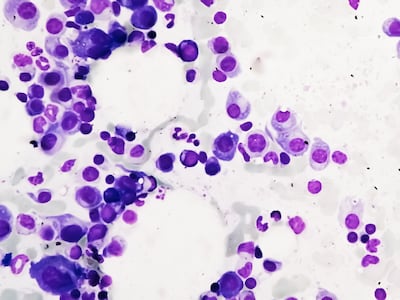Review Pathways
Obesity will continue dominating the cadiovascular, renal and metabolic field in 2026, but the US FDA's Commissioner's National Priority Voucher program could disrupt the user fee calendar throughout the vast sector.
As the FDA sees another quarter with a net loss of employees in CDER and CBER, Pink Sheet editors discuss the potential impact and where it could manifest.
The FDA proposed allowing sponsors that use domestic API suppliers and finished dosage form manufacturing and conduct BE testing in the US to receive a shorter ANDA review.
CDER and CBER added more people in the first quarter of FY 2026 than the previous two quarters combined, but departures still outnumbered the additions.
The US Labor Department also added a proposed rule requiring PBMs to disclose additional compensation information to certain employer-plan sponsors.
Accelerated approvals of novel products rebounded in 2025 as drug development adapted to major pathway changes enacted in the FDA Omnibus Reform Act, but pending applications suggest a potentially bigger impact outside oncology in 2026.
Pink Sheet editors discuss new information on the Commissioner’s National Priority Voucher Program, including the role of the center directors and the Commissioner’s National Priority Voucher Review Council in application reviews.
Newly revised regulations for the implementation of China’s Drug Administration Law transition to a market authorization holder/product-centered regulatory approach in response to the rapidly changing biopharma environment.
Sponsors also want efficacy supplement action packages released after redaction as part of a proposal to increase first-cycle approvals.
Patients severely burned in a Swiss bar fire have been treated with a novel, life-saving antimicrobial containing sulbactam and durlobactam. But this drug has never been filed for approval in the EU, something that is “disappointing” according to the EMA’s Marco Cavaleri.
‘Over the hump, and about to pick up speed’ is how Sarah Yim, director of the FDA’s Office of Therapeutic Biologics and Biosimilars, described the category as she sets out the agency’s plans for more biosimilar progress domestically and internationally in 2026.
However, their recommendation, coupled with those of the Commissioner’s National Priority Voucher Review Council, likely will be a source of pressure on scientific reviewers and the division or office directors who are the signatory authorities on applications.
Pink Sheet editors discuss the average speed of FDA novel drug application reviews in 2025 and consider whether staffing departures and general upheaval throughout the year will impact times in 2026.
Sponsors now must specify domestic manufacturing facilities and bioresearch monitoring study sites at least 60 days before the complete application is submitted, which appears intended to ensure inspections keep pace with the compressed review timelines.
It is unclear in a revised staff manual guide whether Commissioner's National Priority Voucher program approval “recommendations” from the drug and biologic center directors will be advisory or decisional, experts told the Pink Sheet.
No sponsors have been accepted into the Split Real-Time Application Review pilot program and its extension beyond 2027 appears unlikely.
FDA draft guidance formalizes 2024 advisory committee recommendations and would allow earlier, more precise indicators of cancer clearance in multiple myeloma to support accelerated approval and reduce reliance on overall response rate.
In 2025, 43 drugs containing new active substances (NASs) were approved in the EU, and 2026 has already seen three NAS approvals with more expected soon. Also, for 1H 2026, the EU regulator has received 84 letters of intent for marketing applications for new drugs, of which 58 contain NASs.
Canada is looking to expedite the review of certain drug classes by tapping trusted foreign regulators in a bid to get new medicines to patients sooner.
The agency indicated during prescription drug user fee reauthorization discussions about performance metrics that 20% of reviewers were lost last year.


















